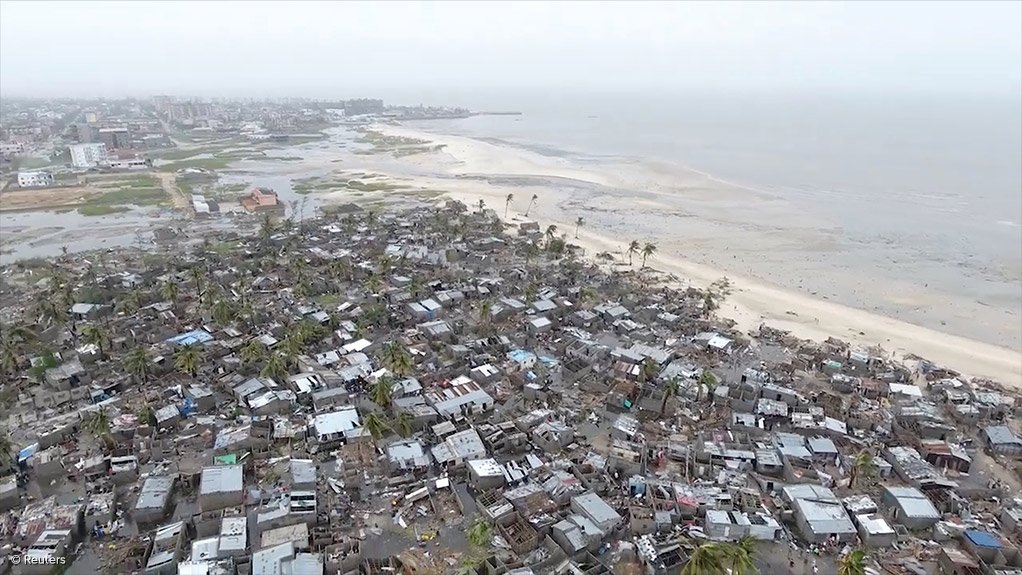The water system which had been damaged by Cyclone Idai has been restored in Beira, after the devastating hurricane hit the Mozambican city and left a trail of death and destruction.
In a statement on Wednesday UNICEF said along with teams from the United Kingdom it supported the government of Mozambique in the operation to restore water supplies amid rising fears of a possible outbreak of cholera. The operation was completed on 22 March - a week after the cyclone hit.
"Restoring access to drinking water for 500 000 people in Beira was a priority," said Chris Cormency, head of the water program, sanitation and hygiene, UNICEF in Mozambique.
More than 700 people were left dead after Cyclone Idai hit Mozambique and Zimbabwe. Many hundreds more are missing,
"Without clean water, children are particularly vulnerable to diseases transmitted by this route, such as diarrhea, which can easily become a threat to life," said Cormency.
Beira, which has a population of about 1.5-million, was without electricity to power the pumps that supply water to the whole city.
The statement said government teams, especially the Fund and Heritage Water Supply, which were on the ground, were quick to identify solutions, and with the logistical, financial and technical support from UNICEF and the UK aid, were able to restore the water supply on 22 March.
"Drinking water is already circulating at about 60 percent of the city's network, until all the infrastructure is restored and operational, the Government has an ongoing special operation transport water to the most affected areas," said Cate Turton, department representative to the UK International Development.
"We recognise the urgency of this situation and the fact that we could facilitate a solution.
"This is a great example of collaboration between several partners, in which the right support was provided by UNICEF and the UK aid under the leadership of the government."
Aid flights funded by UK aid transported the material to Beira and UNICEF provided technical support, fuel and chemicals for water treatment.
the statement said UNICEF, the UK aid, and the government of Mozambique continue to work together to repair the water systems in other areas affected by the storm. The main challenge remains access to flooded areas.
EMAIL THIS ARTICLE SAVE THIS ARTICLE
To subscribe email subscriptions@creamermedia.co.za or click here
To advertise email advertising@creamermedia.co.za or click here











